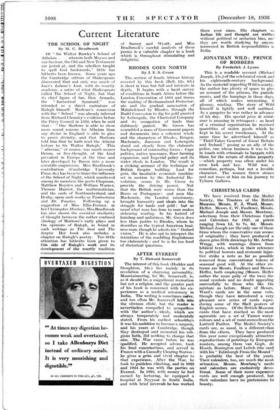The section of South African history covered by this book
(Bell, 12s. 6d.) is short in time but full and intricate in depth. It begins with a lucid survey of conditions in South Africa before the London Convention of 1884 and traces the making of Bechuanaland Protector- ate and the gradual annexation of Matabeleland by Rhodes, through the Rudd Concession to dig for gold granted by Lobengula, the Chartered Company and its occupation of lands thus dubiously gained. Mr. Green has assembled-a mass of Government papers and documents into a coherent whole -and the characters of Rhodes, Kruger, Mackenzie, Jameson and Lobengula stand out clearly from the elaborate background of contending forces : Cape politics, native ignorance, Boer farming expansion, and Imperial policy and its wider ideals in London. The result is a striking account of the technique of British Empire building. Lust for gain, the insatiable economic machine set in motion by the Industrial Re- volution, seems to Mr. Green to provide the driving power. Not that the British were worse than the Boers : or Portugueie ; and men like Mackenzie, the London missionary, brought humanity and ideals into the struggle for lands and gold-; but as usual what man has done to man makes sickening reading. In his hatred of humbug and unfairness, Mr. Green does less than justice to Rhodes, whom he describes as the typical American busi- ness man, though he admits his" Oxford vision." He is also apt to interpret the intentions of the muddling Englishman tab elaborately : and he is far too fond of rhetorical questions.










































 Previous page
Previous page